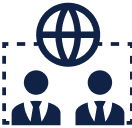Sign up now to have the right to view
50 tenders for free.

To be notified
when a tender matching your filter is
published
To Follow
Tenders
Add New Tender Alert
To Follow
Contracts
Add New Contract Alert
To Follow
Fairs
Add New Fair Alert

Similar Tenders






